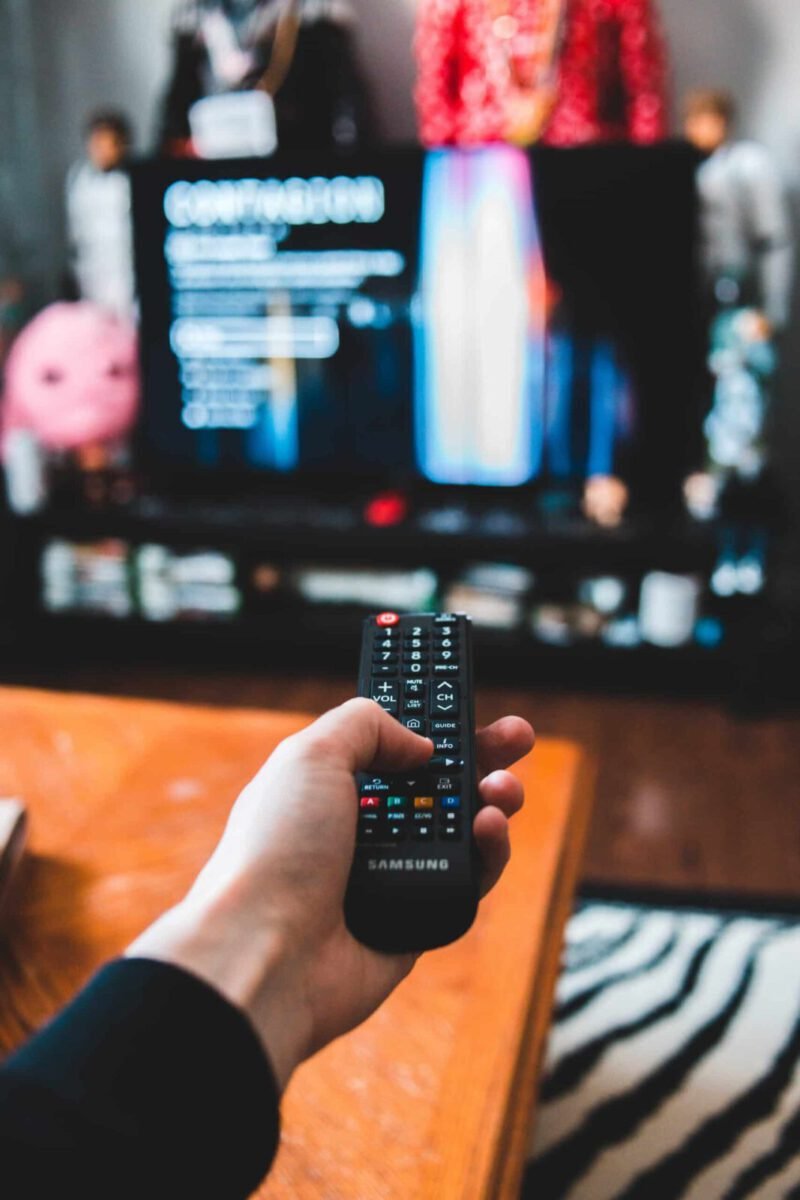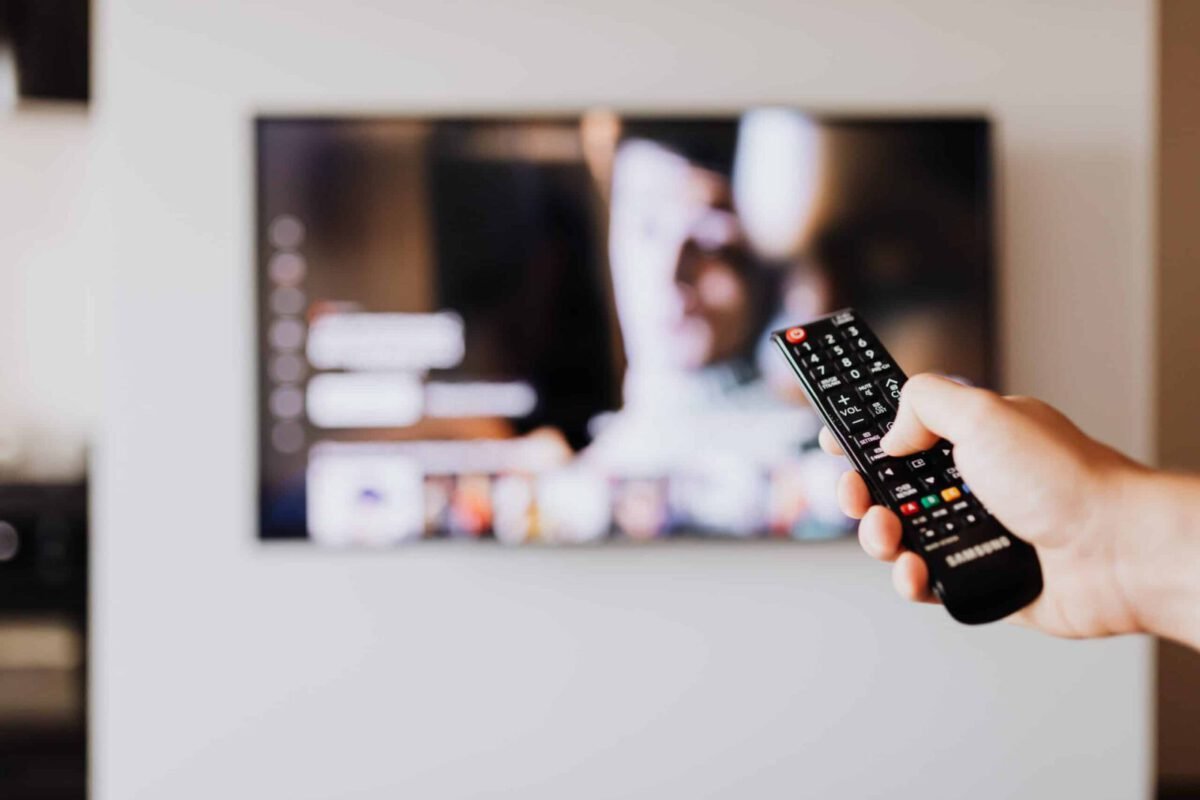Lingopie – Learning a new language with television
Lingopie - How to learn a new language with television
Are you learning German and love watching TV shows all the time? Do you want to turn that into a learning experience? Many people don't know that watching TV and learning can be done at the same time. There are a lot of learning methods, and watching foreign movies or shows can be a very effective way to improve or pick up a new language. The Lingopie app is a fantastic tool to put this method into practice, since it has the best shows with subtitles in multiple languages, making learning much easier.
Scroll down to discover the best tips for learning a language. Grab your popcorn, sit back, and start learning.*
The importance of learning a new language
Learning new languages is very important in our current globalized world. Studying and learning other languages is all about knowing how to connect and communicate with people. The incredibly useful skill of learning a new language will make you feel as if you had a supernatural power to understand what people are saying. Here are the 5 main reasons why learning a new language is important in today’s world:
1. Studies have shown that people who are interested in learning a new language have a better memory. This boost to the memory and their active brains make them great problem solvers and more creative in their work.
This benefit will also help you learn more new foreign languages, but that’s not all: it makes other tasks easier as well. Bilinguals are proved to be better multitaskers than monolinguals.
2. Learning a new language also gives you some insight into the culture of the country (or countries) that speak it. You can better understand the tradition and culture of the people when you know their native tongue. It’s much easier to learn about a new culture by talking with the people, and learning their language makes the conversation easier and more meaningful.
3. Soaking in a new culture and learning a new language are proven ways of becoming more open-minded, understanding, and tolerant individuals. When you are educated enough to understand yourself, your behavior, and your attitude, you are equally ready to understand the emotions of others too. Check the best German movies and series to learn German, and get to know their culture.
It feels great when you are ready to face the world with a new perspective. You can achieve this in many ways, and grasping the essence of a new language is definitely one of them.
4. A perhaps unexpected benefit of learning a language is getting to understand your own in a deeper way. Once you are aware of others’ culture, language, and traditions, you naturally become more conscious of your grammar, customs, pronunciation, and vocabulary, which provides you with the great advantage of knowing your mother tongue exceptionally well.
5. The best part about the new language is you that you can have better conversations with people who speak that language. For instance, if you have learned Spanish, you will be able to better deliver your ideas in a conversation with a Spanish speaker.
What is more, better communication leads to better relationships and friendships. Sometimes we don’t work very hard on creating and maintaining our relationships, but they are incredibly important for living a content life, and speaking more than one language can be an incredible tool in our social life. And learning new languages has never been easier now that we have apps like Lingopie that have everything in just one place, including lists with the best shows to learn Spanish, French, Japanese, Korean, German, and more.
Support my free blog content with a kind donation. Thank you!
Benefits of using television for the learning process
It’s amazing and incredibly satisfying to learn a new skill while enjoying your favorite shows and movies. The motivating factor of doing something fun makes the learning process very effective, pleasant, and easy.
• The foremost benefit of foreign shows is that they are an authentic source of the language being spoken. Shows teach real-time conversations outside a student’s book or a classroom. You can easily get the essence of what’s the language natural flow and pronunciation when using television as a learning source.
An invaluable teaching tool, television also provides visual support to the learners. It is easier to learn something by watching rather than only reading from big, thick books. The facial expressions and gestures make it easy for the learners to understand what is being said with much less effort.
From drama, comedy, and soaps to news, documentaries, and even kids’ shows, television and movies have everything you could think of. There is something for everyone, no matter their taste or age. You can easily find content that is fun and informative at the same time, and kids learn their mother tongue by listening to it in their everyday life, so watching shows in other languages will help them pick them up as well. The Lingopie app offers the best shows for children and adults alike.
Television shows and movies are made for entertainment purposes, which makes them very attractive and engaging learning tools, unlike the often dry, boring, and uninteresting materials learners commonly find in books and worksheets.
Audiovisual resources are a great solution to the problems presented by those materials. With the best shows and movies, learning doesn’t have to feel like a chore anymore. The engaging and entertaining content makes learning a new foreign language fun and effective.
Shows and movies are usually made by native speakers of whatever language the movie is in and are aimed also at native speakers. This means that you will get to learn a language from people who really speak the language, which will help you communicate better in that language. And much of your work to achieve this will be done just by enjoying a movie!
5 tips to learn a language with television
Let’s look at the 5 best tips that will help you make the most of your learning process with TV:
1. Select two shows: Easy and difficult
To begin with, you need to make a selection of shows or movies. This may seem like a useless tip at first, but this is the first step toward learning. You should pick two shows, one that is easy for you and one that you find harder. This is because you will use each one for different purposes.
If you can understand 80% to 90% of a show, then it’s an easy one for you. Choose one that fits your interests and use it to learn the correct pronunciation of words and increase your listening skills, since listening plays an important role in the conversation, sometimes even more than speaking.
Now you should choose a show that is harder. This more difficult show will be one from which you can pick only 30% or 40% percent. Use this show to learn some grammar and expand your vocabulary while hearing how the words should be pronounced.
2. Use subtitles:
Using subtitles is important, but can also be distracting at the same time. What we suggest is starting your learning process with subtitles, which will help you understand the language better when you are starting.
Watch your show or movie with two subtitles, one in your language and the other in the one you are trying to master. In this way, you can compare the words while listening to the characters speaking them in the native style.
Lingopie is an interactive language learning app that will help you with this method. It offers a lot of features, including subtitles in two languages, which you can also switch off once you are in the intermediate level, and you can understand the language better way.
Switching the subtitles off is also useful because they can distract from the listening process. However, without them, you can’t even start. So, once you have some understanding of the language, try watching the show without subtitles to increase your listening skills. That will ultimately improve your ability to maintain a conversation in your chosen language.
3. Watch television every day:
The best part about this learning method is that you have to watch TV every day. You should spend 30-50 minutes of your day with shows in the language you want to learn.
Regular watching is important for quick learning. Now that you have chosen easy and difficult shows, watch the easy one every day and the difficult one at least 3 times a week.
4. Watch the show or movie multiple times:
Repeated viewing will help you absorb the language better. If you have a lot of free time, then use this tip.
If you missed a part, go back and listen to it again and again until you understand it completely. Learning a language with television has the benefit that you can replay the scenes as many times as you want, which is impossible when having a conversation with real people.
5. Always Write and Take Notes:
While you are watching television, make sure to have a pen and paper at hand. Write down all the words that are difficult for you to understand. You can later use a dictionary or go online to find the meaning of the word. Or, if you are using Lingopie, just click on the words to get an instant translation.
Wrap-up
Television does not make you dumber. In fact, if used for learning purposes, it can make your brain even sharper. There are many ways of learning a language, but television is the best of them all. If you want to learn a language to talk with the people you meet and make new friends, then there is no better approach than watching TV. Sign up for the Lingopie app and start your free trial now to make your learning experience easier and more fun.
Bis bald!
——
* This article contains sponsored content.
Photo 1: Erik Mclean / www.unsplash.com
Photo 2: Wes Hicks / www.unsplash.com
Photo 3: Ron Lach / www.pexels.com
Photo 4: Karolina Grabowska / www.pexels.com
Hi there, I'm Stefanie, the author of the blog post you're reading.
Please support my work!
Search blog




